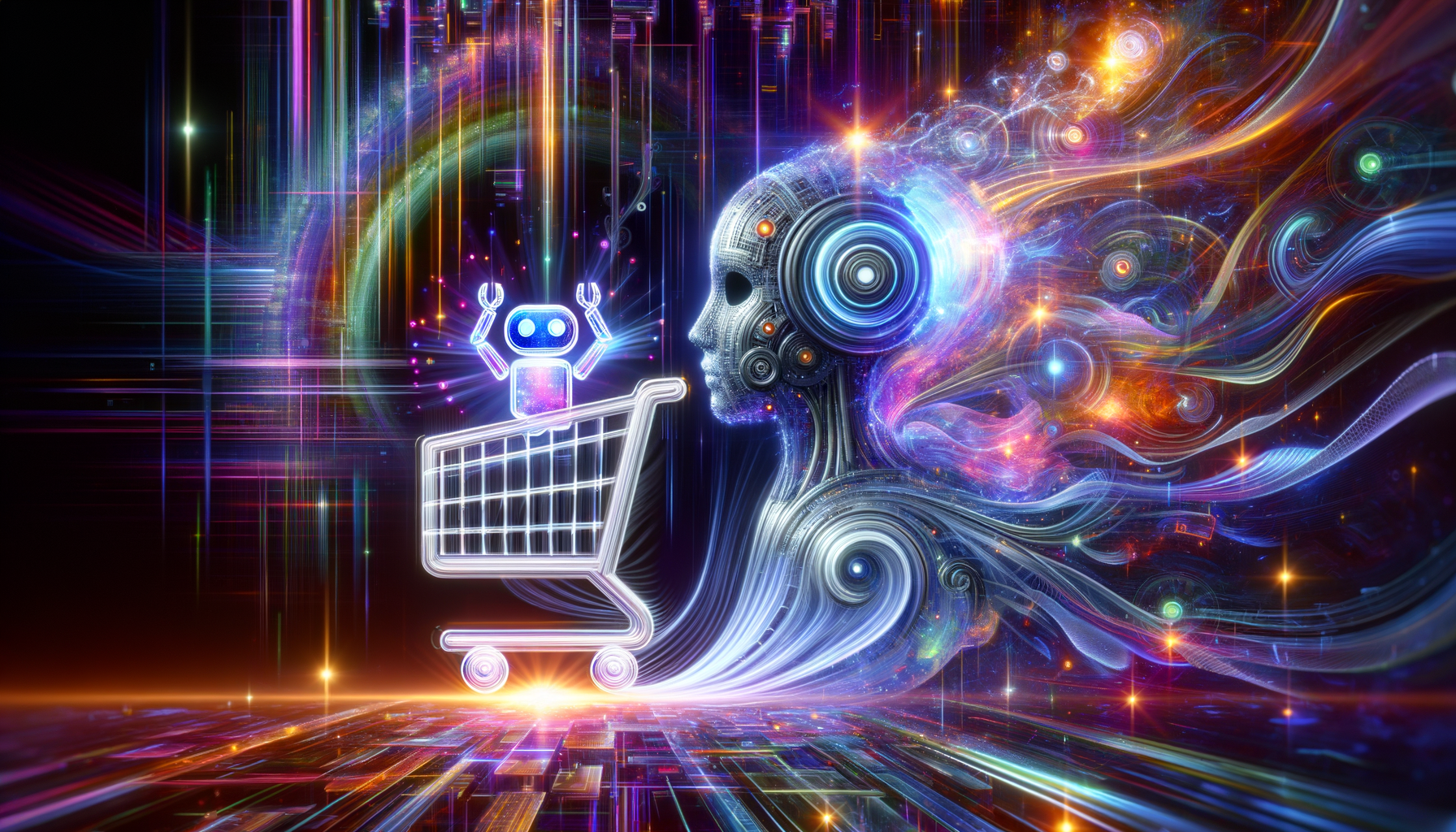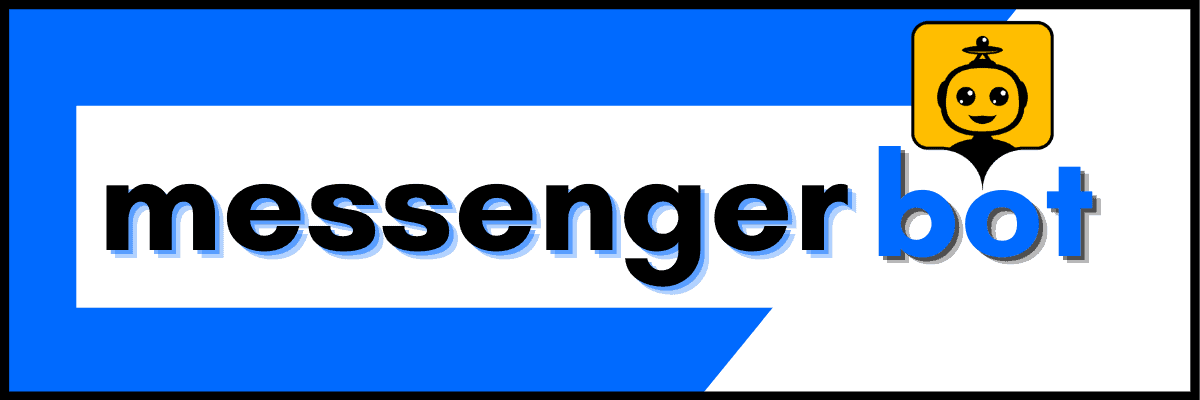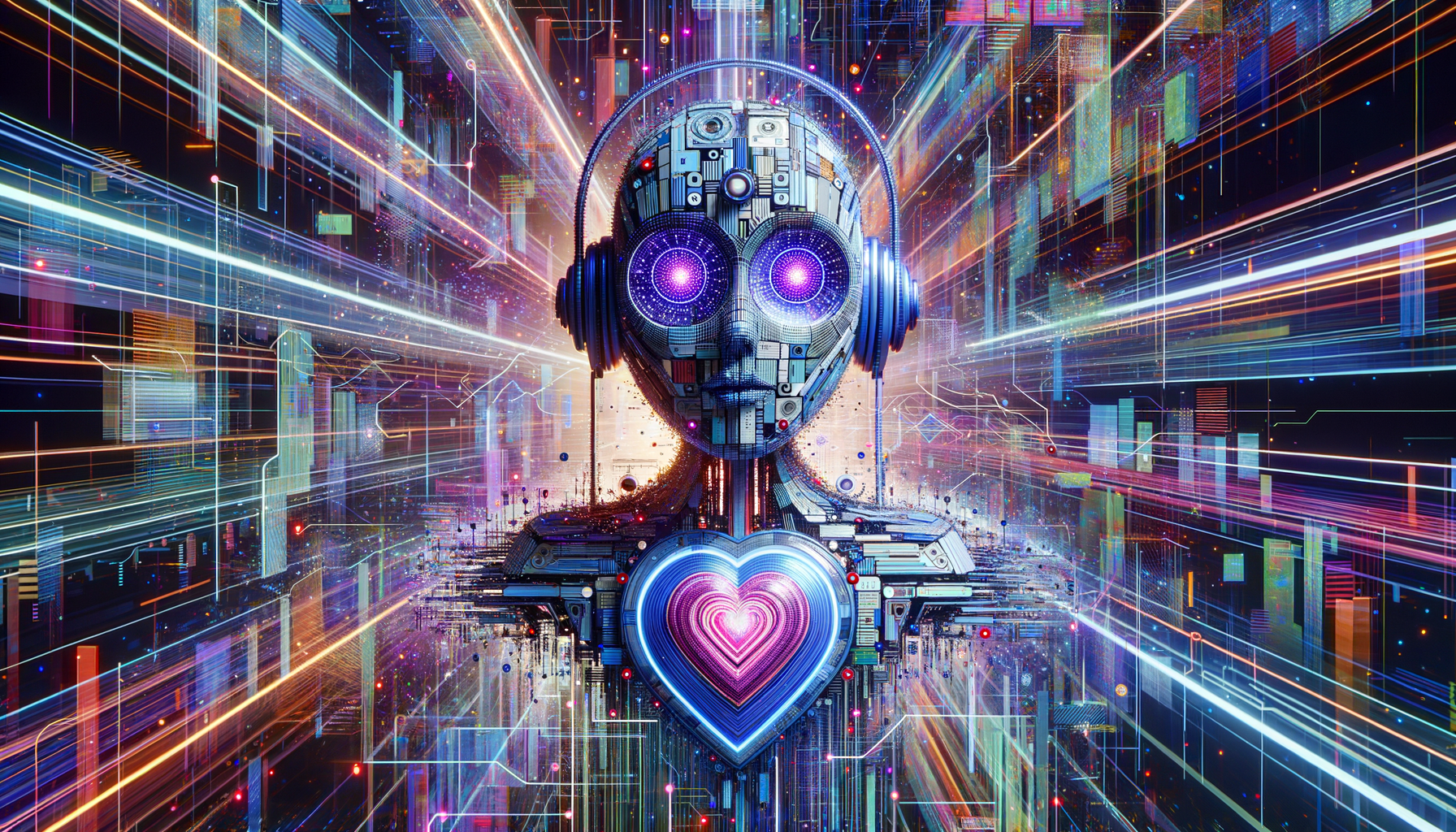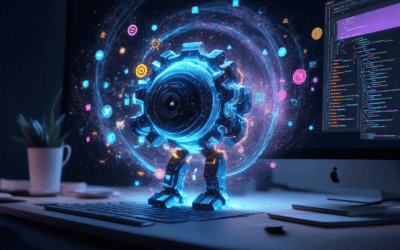In today’s fast-paced digital landscape, the e-commerce industry is rapidly evolving, with customer expectations soaring higher than ever before. Amidst this competitive arena, leveraging cutting-edge artificial intelligence (AI) chatbots has emerged as a game-changing strategy for businesses seeking to elevate their customer engagement and drive sales. These intelligent conversational agents seamlessly integrate with e-commerce platforms, revolutionizing the way brands interact with their customers, offering personalized assistance, instant resolutions, and a truly exceptional shopping experience. From AI chatbots that streamline order processing to those that provide tailored product recommendations, this article delves into the world of the best e-commerce chatbots, exploring their capabilities, benefits, and how they can propel your online business to new heights.
What are e-commerce chatbots?
E-commerce chatbots are artificial intelligence (AI) powered virtual assistants designed to revolutionize the online shopping experience. These cutting-edge tools leverage advanced natural language processing (NLP) capabilities to understand and engage in human-like conversations, providing personalized assistance, product recommendations, and streamlined order processing.
At Messenger Bot, we are at the forefront of this transformative technology, empowering businesses to enhance customer engagement, drive sales, and foster unparalleled brand loyalty through seamless conversational interactions.
1.1 Best ecommerce chatbots free
As the demand for exceptional customer experiences soars, many e-commerce businesses are embracing the power of chatbots, particularly those offering free or freemium models. While there are numerous options available, some standout platforms include Brain Pod AI, a leading provider of generative AI solutions, as well as established players like Tidio, ChatFuel, and Botkit.
These platforms empower businesses to create and deploy highly engaging chatbots without the need for extensive coding or AI expertise. With user-friendly interfaces and a wealth of pre-built templates, businesses can quickly launch chatbots tailored to their specific needs, from customer support to lead generation and beyond.
For those seeking more robust and scalable solutions, Messenger Bot offers a range of affordable plans designed to cater to businesses of all sizes, ensuring access to cutting-edge AI capabilities and seamless integration with popular e-commerce platforms.
1.2 Ecommerce chatbot examples
Leading e-commerce brands have successfully harnessed the power of chatbots to elevate their customer experiences and drive business growth. For instance, Sephora, a renowned beauty retailer, leverages a chatbot to provide personalized product recommendations, makeup tutorials, and seamless order tracking, fostering deeper customer connections and loyalty.
Similarly, Domino’s Pizza has integrated a chatbot into various messaging platforms, enabling customers to easily place orders, track deliveries, and even engage in entertaining conversations, enhancing the overall brand experience.
Fashion giant H&M has also embraced chatbot technology, offering a virtual stylist that suggests outfits based on individual preferences and occasions, streamlining the shopping journey and driving sales.
These examples illustrate the transformative potential of e-commerce chatbots, showcasing their ability to create seamless, personalized, and engaging shopping experiences that resonate with modern consumers.

Top 10 Best eCommerce Chatbots
In the ever-evolving landscape of online commerce, businesses are constantly seeking innovative ways to enhance customer engagement and streamline operations. One solution that has gained significant traction is the integration of AI-powered chatbots. These virtual assistants are revolutionizing the ecommerce industry by providing 24/7 support, personalized recommendations, and seamless shopping experiences. In this section, we’ll explore the top 10 best ecommerce chatbots that are transforming the way businesses interact with their customers.
2.1 AI Chatbot Ecommerce
Incorporating AI chatbots into ecommerce platforms has become a game-changer for businesses looking to optimize their customer service and drive sales. These intelligent virtual assistants can handle a wide range of tasks, from answering frequently asked questions to guiding customers through the purchasing process. By leveraging natural language processing and machine learning algorithms, AI chatbots can understand and respond to customer inquiries in a human-like manner, providing a seamless and personalized experience.
One of the most significant benefits of AI chatbots in ecommerce is their ability to operate around the clock, ensuring that customers receive prompt assistance regardless of the time of day. This level of availability can significantly improve customer satisfaction and reduce cart abandonment rates. Additionally, AI chatbots can analyze customer data and provide personalized product recommendations, enhancing the overall shopping experience and increasing the likelihood of conversions.
Leading ecommerce platforms like Shopify, BigCommerce, and WooCommerce offer seamless integration with AI chatbot solutions, enabling businesses to leverage this technology with ease. By embracing AI chatbots, ecommerce businesses can stay ahead of the curve and provide exceptional customer experiences that drive loyalty and growth.
2.2 Best Chatbots for eCommerce
When it comes to selecting the best chatbots for ecommerce, businesses have a wide range of options to choose from. Here are some of the top contenders:
- Messenger Bot: Our cutting-edge AI-powered chatbot solution offers a comprehensive suite of features tailored specifically for ecommerce businesses. With seamless integration into platforms like Facebook Messenger, Instagram, and your website, Messenger Bot provides 24/7 customer support, personalized product recommendations, and streamlined checkout processes. Our advanced natural language processing capabilities ensure that your customers receive accurate and relevant responses, enhancing their overall shopping experience.
- Brain Pod AI: Offering a comprehensive suite of AI tools, including a powerful AI chat assistant, Brain Pod AI is a versatile solution for ecommerce businesses. Their AI chat assistant can handle customer inquiries, provide personalized recommendations, and guide users through the purchasing process seamlessly.
- Tidio: A popular chatbot platform that integrates seamlessly with various ecommerce platforms, including Shopify, WooCommerce, and BigCommerce. Tidio offers a user-friendly interface, automated responses, and live chat capabilities, making it a comprehensive solution for enhancing customer engagement.
- Conversio: Designed specifically for ecommerce businesses, Conversio’s AI chatbot leverages advanced machine learning algorithms to provide personalized product recommendations, recover abandoned carts, and offer 24/7 support to customers.
- Drift: A powerful conversational marketing platform that combines chatbots and live chat capabilities. Drift’s AI-powered chatbots can engage with customers, qualify leads, and provide personalized assistance throughout the sales funnel.
When evaluating the best chatbots for your ecommerce business, consider factors such as integration capabilities, natural language processing abilities, customization options, and scalability. Additionally, it’s crucial to assess the chatbot’s ability to handle complex queries, provide accurate product information, and seamlessly guide customers through the purchasing process.
What is the best online AI chatbot?
As the demand for intelligent virtual assistants continues to soar, numerous companies have emerged, offering innovative AI chatbot solutions tailored to meet the diverse needs of businesses and individuals. Among the vast array of options available, several standout chatbots have garnered significant recognition for their exceptional performance and cutting-edge capabilities.
3.1 Best chatbot customer service
When it comes to delivering outstanding customer service, certain AI chatbots have truly set the bar high. Brain Pod AI, a leading provider of generative AI solutions, offers a powerful Multilingual AI Chat Assistant that seamlessly integrates with various platforms, enabling businesses to provide exceptional customer support across multiple languages. This innovative chatbot leverages advanced natural language processing and machine learning capabilities to understand and respond to customer inquiries with human-like accuracy and empathy.
Another notable contender in the realm of customer service chatbots is IBM Watson Assistant. Powered by IBM’s cutting-edge AI technology, this chatbot excels at understanding complex queries and providing personalized, context-aware responses. Its ability to seamlessly integrate with existing systems and support a wide range of languages makes it a versatile choice for businesses operating on a global scale.
3.2 Best ai chatting app
For those seeking a more conversational and engaging AI chatting experience, several innovative chatbots have gained popularity. Anthropic’s Claude has garnered significant attention for its remarkable ability to engage in substantive, contextual conversations on a wide range of topics. Powered by advanced language models and reinforcement learning techniques, Claude’s responses are not only informative but also nuanced and tailored to the individual user’s needs.
ChatGPT by OpenAI has also emerged as a standout AI chatting app, captivating users with its ability to understand and respond to complex prompts in a remarkably human-like manner. Its versatility extends beyond casual conversation, as it can assist with tasks such as writing, coding, and even creative endeavors.
It’s important to note that while these AI chatbots offer exceptional capabilities, they are constantly evolving, and new advancements in the field of natural language processing and machine learning continue to push the boundaries of what’s possible. As such, the landscape of the best AI chatbots is ever-changing, and businesses and individuals alike should stay informed about the latest developments to make informed decisions about the solutions that best suit their needs.
Which chatbot does Amazon use?
Amazon, the global e-commerce giant, has developed and utilizes its own proprietary chatbot technology called Amazon Virtual Agent. This AI-powered chatbot serves as a virtual customer service assistant, helping customers navigate Amazon’s vast product offerings, provide information about orders, and address common inquiries.
Amazon Virtual Agent leverages natural language processing (NLP) and machine learning algorithms to understand and respond to customer queries in a conversational manner. It can handle a wide range of tasks, including order tracking, product recommendations, and troubleshooting various issues related to Amazon’s services.
By integrating Amazon Virtual Agent into their website and mobile applications, Amazon aims to provide a seamless and efficient customer service experience. Customers can interact with the chatbot through text or voice, allowing for convenient and accessible support.
4.1 Chatbots for website
Chatbots have become increasingly popular tools for enhancing customer engagement and support on websites across various industries, including e-commerce. Here are some notable examples of chatbots designed specifically for website integration:
- Intercom: A popular conversational marketing platform that offers chatbot capabilities for websites, allowing businesses to engage with visitors, qualify leads, and provide support.
- Drift: Drift’s chatbot solution helps businesses capture and qualify leads, book meetings, and provide real-time support on their websites.
- Brain Pod AI: This AI company offers a range of chatbot solutions, including website chatbots that can handle customer inquiries, provide product recommendations, and assist with transactions.
- Chatfuel: A platform that enables businesses to build and deploy chatbots for websites, as well as messaging apps like Facebook Messenger and Telegram.
Integrating chatbots on websites can streamline customer interactions, reduce response times, and improve overall user experience, ultimately leading to increased conversions and customer satisfaction.
4.2 Best website chat bot
Determining the best website chatbot can vary depending on the specific requirements and goals of a business. However, some chatbots that are widely recognized for their performance and capabilities in the website domain include:
- Intercom: Intercom’s chatbot solution is highly praised for its ability to engage with website visitors, qualify leads, and provide personalized support. Its advanced features, such as targeted messaging and product tours, make it a popular choice for businesses looking to enhance their website experience.
- Drift: Drift’s chatbot is known for its seamless integration with websites and its ability to capture and qualify leads effectively. It offers features like real-time messaging, meeting scheduling, and integration with various CRM and marketing automation platforms.
- Brain Pod AI: This AI company offers advanced chatbot solutions that can handle a wide range of customer inquiries, provide product recommendations, and assist with transactions on websites. Their chatbots are highly customizable and can be trained to understand specific business contexts.
- Chatfuel: While Chatfuel is primarily known for its chatbot builder for messaging apps, it also offers website chatbot capabilities. Its user-friendly interface and integration options make it a popular choice for businesses looking to enhance their website experience.
When selecting the best website chatbot, it’s crucial to consider factors such as integration capabilities, natural language processing (NLP) abilities, customization options, and scalability to ensure it aligns with your business needs and provides an exceptional user experience on your website.

5. How to use ChatGPT for eCommerce?
ChatGPT, the groundbreaking AI language model developed by OpenAI, has the potential to revolutionize the eCommerce industry. By harnessing the power of natural language processing and advanced machine learning algorithms, ChatGPT can provide intelligent and personalized assistance to online shoppers, enhancing their overall experience.
One of the primary ways ChatGPT can be utilized in eCommerce is through the integration of conversational AI chatbots. These chatbots can be trained on the ChatGPT language model, enabling them to understand and respond to customer inquiries in a natural and human-like manner. By providing accurate and relevant information, these chatbots can streamline the shopping experience, reduce customer support costs, and increase overall satisfaction.
5.1 Chatbot website
Integrating a ChatGPT-powered chatbot on your eCommerce website can be a game-changer. These chatbots can assist customers throughout the entire shopping journey, from product discovery and recommendations to order tracking and post-purchase support. By understanding natural language queries, the chatbot can provide personalized assistance, answering questions, suggesting products based on preferences, and guiding customers through the checkout process seamlessly.
Additionally, ChatGPT-powered chatbots can be trained to understand and respond in multiple languages, making them an invaluable asset for businesses catering to a global audience. This can significantly improve the customer experience, eliminate language barriers, and foster trust and loyalty among international customers.
5.2 Free chatbot for ecommerce website
While there are numerous paid chatbot solutions available in the market, businesses can also explore free options to leverage the power of ChatGPT. For instance, Brain Pod AI offers a free multilingual AI chat assistant that can be integrated into eCommerce websites. This AI assistant, powered by cutting-edge language models like ChatGPT, can provide personalized and contextual assistance to customers, enhancing their overall shopping experience.
By leveraging free or cost-effective ChatGPT-powered chatbot solutions, businesses can experiment with conversational AI and gauge its impact on their eCommerce operations before committing to more robust and feature-rich paid solutions.
6. What are the 4 types of chatbots?
As the world of AI and conversational interfaces continues to evolve, chatbots have become an increasingly integral part of modern ecommerce experiences. These intelligent virtual assistants come in various forms, each designed to cater to specific needs and provide enhanced customer engagement. At Messenger Bot, we’re dedicated to empowering businesses with cutting-edge chatbot solutions that seamlessly integrate into their ecommerce platforms. Let’s explore the four primary types of chatbots revolutionizing the ecommerce landscape.
6.1 Chatbots ecommerce
Ecommerce chatbots are specialized virtual assistants tailored to support online shopping experiences. They can assist customers throughout the entire purchasing journey, from browsing and product recommendations to order tracking and post-purchase support. By leveraging Brain Pod AI’s advanced multilingual chat assistant, businesses can provide 24/7 personalized assistance, streamlining the shopping process and fostering customer loyalty.
Leading ecommerce platforms like Shopify, BigCommerce, and WooCommerce offer seamless integration with chatbots, enabling merchants to elevate their customer service and drive sales. With ecommerce chatbots, businesses can automate routine inquiries, offer product recommendations based on user preferences, and facilitate secure transactions, ensuring a frictionless and engaging shopping experience.
6.2 e-commerce chatbot python github
For developers and businesses seeking a more customized approach, open-source chatbot solutions built with Python offer a wealth of possibilities. GitHub hosts a vast array of repositories dedicated to ecommerce chatbots, providing a collaborative platform for developers to contribute, modify, and integrate these AI-powered assistants into their ecommerce platforms.
One notable example is the ChatterBot library, a Python-based framework designed for building conversational agents. This versatile tool enables developers to create chatbots tailored to their specific ecommerce requirements, leveraging machine learning techniques and natural language processing capabilities.
By leveraging the power of open-source communities and Python’s extensive ecosystem, businesses can craft highly customized chatbot solutions that seamlessly align with their ecommerce strategies, offering a personalized and engaging customer experience while maintaining full control over the underlying codebase.
Ecommerce AI leverages machine learning algorithms and data analytics to optimize various aspects of online retail operations. It can analyze customer behavior patterns, preferences, and historical purchase data to provide personalized product recommendations, predict demand trends, and automate inventory management. AI-powered chatbots and virtual assistants enhance customer service by providing instant support, answering queries, and guiding users through the purchasing process. Additionally, AI pricing strategies dynamically adjust product prices based on market conditions, competitor offerings, and customer willingness to pay, maximizing revenue. Ecommerce AI also plays a crucial role in fraud detection by identifying suspicious transactions and minimizing financial risks. By integrating AI into ecommerce platforms, businesses can streamline operations, optimize marketing campaigns through targeted advertising, and deliver seamless, data-driven shopping experiences that drive customer satisfaction and loyalty (Salesforce, 2022; Gartner, 2021; Harvard Business Review, 2020).
7. How does ecommerce AI work?
Ecommerce AI, or artificial intelligence for e-commerce, leverages advanced algorithms and machine learning models to streamline and optimize various aspects of online shopping experiences. At its core, ecommerce AI aims to enhance customer interactions, personalize recommendations, automate processes, and drive data-driven decision-making.
Here’s a closer look at how ecommerce AI works:
- Chatbots and Virtual Assistants: AI-powered chatbots and virtual assistants, like those offered by Messenger Bot, engage with customers in real-time, answering queries, providing product recommendations, and guiding them through the purchasing process. These conversational AI chatbots leverage natural language processing (NLP) to understand and respond to customer inquiries accurately.
- Personalized Product Recommendations: By analyzing customer data, browsing history, and purchase patterns, ecommerce AI can provide highly personalized product recommendations tailored to individual preferences and interests. This not only enhances the shopping experience but also increases the likelihood of conversions and customer satisfaction.
- Predictive Analytics and Demand Forecasting: AI algorithms can analyze vast amounts of data, including sales trends, customer behavior, and market conditions, to forecast demand accurately. This allows e-commerce businesses to optimize inventory levels, streamline supply chain operations, and minimize stockouts or overstocking.
- Pricing Optimization: Ecommerce AI can dynamically adjust pricing strategies based on real-time market conditions, competitor pricing, and customer behavior. This enables businesses to maximize revenue while remaining competitive and offering attractive deals to customers.
- Visual Search and Image Recognition: AI-powered image recognition technology allows customers to search for products by uploading an image or taking a picture, enabling seamless visual search experiences. This can significantly enhance product discovery and provide a more intuitive shopping experience.
- Fraud Detection and Security: AI algorithms can analyze vast amounts of transaction data and user behavior patterns to detect potential fraudulent activities, protecting both customers and businesses from financial losses and security breaches.
Ecommerce AI is continuously evolving, with companies like Brain Pod AI at the forefront of developing advanced generative AI solutions for various industries, including e-commerce. By leveraging the power of AI, online businesses can streamline operations, enhance customer experiences, and gain a competitive edge in the ever-evolving digital landscape.
7.1 Chatbots customer service
Chatbots have become an increasingly popular tool for delivering exceptional customer service in the e-commerce industry. By leveraging artificial intelligence and natural language processing, AI-powered customer service chatbots can engage with customers in real-time, providing instant support, answering inquiries, and resolving issues efficiently.
Here’s how chatbots are revolutionizing customer service in e-commerce:
- 24/7 Availability: Unlike human agents, chatbots can provide round-the-clock support, ensuring that customers can get assistance whenever they need it, without being limited by business hours or time zones.
- Instant Responses: Chatbots can respond to customer queries almost instantly, reducing wait times and providing a seamless and efficient support experience. This can significantly improve customer satisfaction and reduce frustration caused by long wait times.
- Multilingual Support: Many chatbots, like those offered by Brain Pod AI, can communicate in multiple languages, allowing e-commerce businesses to cater to a global customer base and provide support in their preferred languages.
- Personalized Assistance: By leveraging customer data and purchase histories, chatbots can provide personalized recommendations, order tracking updates, and tailored support based on individual preferences and needs.
- Scalability: Chatbots can handle multiple conversations simultaneously, making them highly scalable and able to support large volumes of customer inquiries without compromising on response times or quality of service.
- Integration with Other Systems: Chatbots can seamlessly integrate with various e-commerce platforms, customer relationship management (CRM) systems, and other business applications, enabling a seamless flow of information and streamlining processes.
While chatbots may not entirely replace human agents, they can significantly augment and enhance customer service operations, handling routine inquiries and freeing up human resources to focus on more complex or sensitive issues. Companies like Messenger Bot offer powerful chatbot solutions that can be tailored to specific e-commerce needs, enabling businesses to deliver exceptional customer experiences while optimizing operational efficiency.
7.2 Customer service chat bots
Customer service chatbots are AI-powered virtual assistants designed to enhance the customer support experience in e-commerce and other industries. These intelligent chatbots leverage natural language processing (NLP) and machine learning algorithms to understand and respond to customer inquiries, providing efficient and personalized assistance.
Here are some key benefits of implementing customer service chatbots in e-commerce:
- Improved Response Times: Chatbots can provide immediate responses to customer queries, reducing wait times and improving overall customer satisfaction.
- 24/7 Availability: Unlike human agents, chatbots can operate around the clock, ensuring that customers receive support whenever they need it, regardless of time zones or business hours.
- Consistent and Accurate Responses: Chatbots are programmed to provide consistent and accurate information based on predefined knowledge bases, ensuring that customers receive reliable and up-to-date information.
- Multilingual Support: Many chatbot platforms, like Brain Pod AI’s multilingual chatbot, can communicate in multiple languages, enabling businesses to cater to a global customer base and provide support in their preferred languages.
- Cost-Effective: Implementing chatbots can significantly reduce operational costs associated with traditional customer service channels, such as call centers or in-person support.
- Personalized Assistance: By leveraging customer data and purchase histories, chatbots can provide personalized recommendations, order tracking updates, and tailored support based on individual preferences and needs.
- Scalability: Chatbots can handle multiple conversations simultaneously, making them highly scalable and able to support large volumes of customer inquiries without compromising on response times or quality of service.
Leading e-commerce companies, such as Amazon and eBay, have already implemented customer service chatbots to streamline their support operations and enhance the overall customer experience. As AI technology continues to advance, we can expect chatbots to become even more sophisticated, further improving their ability to understand and respond to complex customer inquiries effectively.




